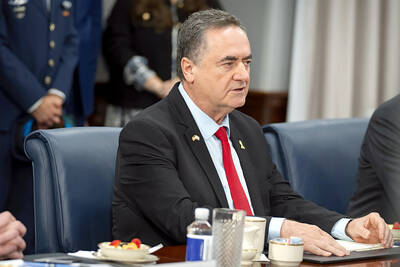It has become a recurring theme of US Secretary of State Hillary Rodham Clinton’s early travels as the chief diplomat of the US: She says that US policy on a given issue has failed and her foreign listeners fall all over themselves in gratitude.
On Friday, Clinton said in Santo Domingo that the uncompromising policy of the administration of former US president George W. Bush toward Cuba had not worked. That, she said, was why US President Barack Obama decided earlier this week to lift restrictions on travel and financial transfers for US residents with relatives in Cuba.
“We are continuing to look for productive ways forward, because we view the present policy as having failed,” Clinton said at a news conference in the sun-dappled capital of the Dominican Republic, hours before flying to join Obama at the Summit of the Americas in Trinidad and Tobago.
The contrition tour goes beyond Latin America. In China, Clinton told audiences that the US must accept its responsibility as a leading emitter of greenhouse gases. In Indonesia, she said the American-backed policy of sanctions against Myanmar had not been effective. And in the Middle East, she pointed out that ostracizing the Iranian government had not persuaded it to give up its nuclear weapons ambitions.
Like other leaders around the world, Clinton’s host, Dominican Republic President Leonel Antonio Fernandez, responded effusively on Friday, hailing the secretary and her boss, Obama, for their view on Cuban policy, which he said took “great courage” and could utterly transform the political landscape of Latin America.
“President Obama is paving a new road,” he said. “It is recognition of the fact that previous policies have failed. Fifty years of a policy that has not generated the originally sought purposes can be called a failure.”
In fact, Clinton’s aides clarified, she was not condemning the half-century-old trade embargo against Cuba, which the Obama administration has not yet agreed to lift. Rather, her reference was to the strict travel and financial restrictions imposed by the Bush administration.
But it hardly seemed to matter. For a senior US official — someone who almost became president — to declare that the US had erred, makes a major impact on foreign audiences.
Clinton drew a similarly gratified response when she said in Mexico recently that the huge US appetite for drugs was fueling the booming narcotics trade in the region.
She repeated that message in the Dominican Republic on Friday, saying: “We acknowledge we have a responsibility, and we have to act in concert with you.”

STEPPING UP: Diminished US polar science presence mean opportunities for the UK and other countries, although China or Russia might also fill that gap, a researcher said The UK’s flagship polar research vessel is to head to Antarctica next week to help advance dozens of climate change-linked science projects, as Western nations spearhead studies there while the US withdraws. The RRS Sir David Attenborough, a state-of-the-art ship named after the renowned British naturalist, would aid research on everything from “hunting underwater tsunamis” to tracking glacier melt and whale populations. Operated by the British Antarctic Survey (BAS), the country’s polar research institute, the 15,000-tonne icebreaker — boasting a helipad, and various laboratories and gadgetry — is pivotal to the UK’s efforts to assess climate change’s impact there. “The saying goes

Police in China detained dozens of pastors of one of its largest underground churches over the weekend, a church spokesperson and relatives said, in the biggest crackdown on Christians since 2018. The detentions, which come amid renewed China-US tensions after Beijing dramatically expanded rare earth export controls last week, drew condemnation from US Secretary of State Marco Rubio, who on Sunday called for the immediate release of the pastors. Pastor Jin Mingri (金明日), founder of Zion Church, an unofficial “house church” not sanctioned by the Chinese government, was detained at his home in the southern city of Beihai on Friday evening, said

TICKING CLOCK: A path to a budget agreement was still possible, the president’s office said, as a debate on reversing an increase of the pension age carries on French President Emmanuel Macron yesterday was racing to find a new prime minister within a two-day deadline after the resignation of outgoing French Prime Minister Sebastien Lecornu tipped the country deeper into political crisis. The presidency late on Wednesday said that Macron would name a new prime minister within 48 hours, indicating that the appointment would come by this evening at the latest. Lecornu told French television in an interview that he expected a new prime minister to be named — rather than early legislative elections or Macron’s resignation — to resolve the crisis. The developments were the latest twists in three tumultuous

FIRST STAGE: Hamas has agreed to release 48 Israeli hostages in exchange for 250 ‘national security prisoners’ as well as 1,700 Gazans, but has resisted calls to disarm Israel plans to destroy what remains of Hamas’ network of tunnels under Gaza, working with US approval after its hostages are freed, it said yesterday. Israeli Minister of Defense Israel Katz said that the operation would be conducted under an “international mechanism” led by the US. “Israel’s great challenge after the hostage release phase will be the destruction of all Hamas terrorist tunnels in Gaza,” Katz said. “I have ordered the army to prepare to carry out this mission,” he added. Hamas operates a network of tunnels under Gaza, allowing its fighters to operate out of sight of Israeli reconnaissance. Some have passed under